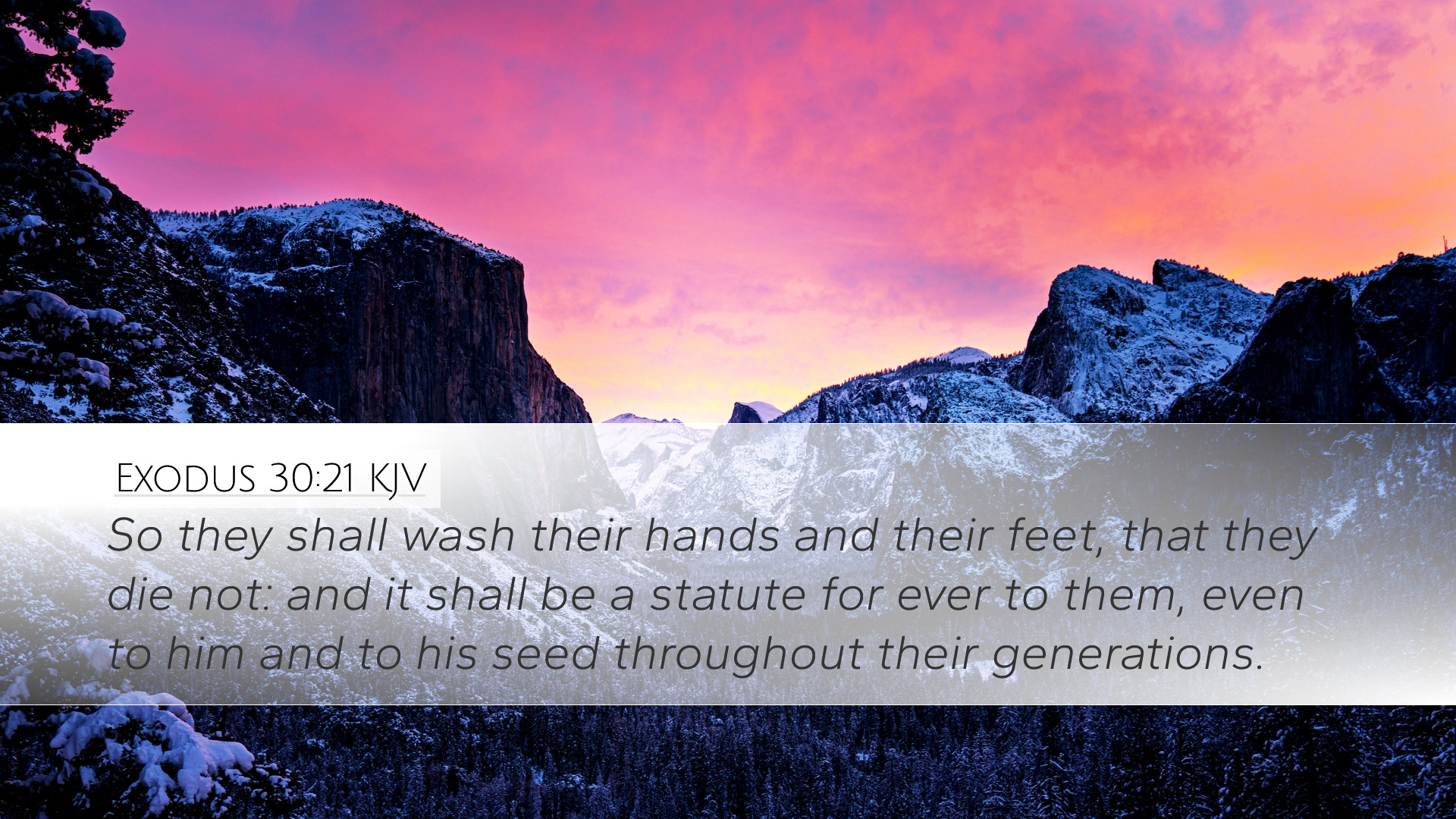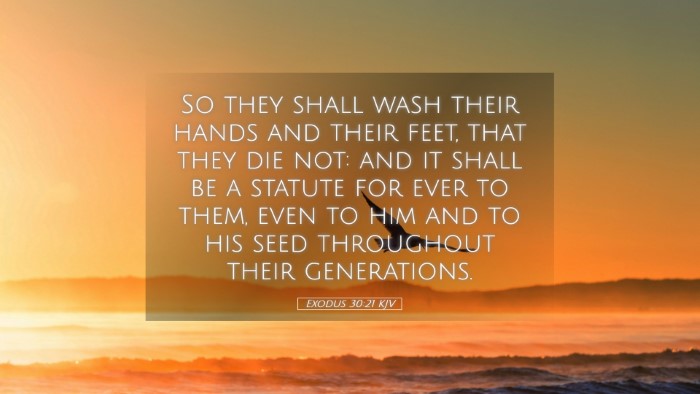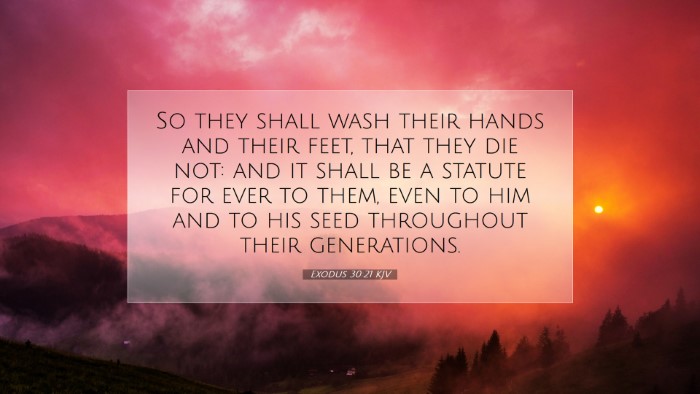Commentary on Exodus 30:21
Verse: "So they shall wash their hands and their feet, that they may not die; and it shall be a statute forever to them, even to him and his descendants throughout their generations."
Introduction
Exodus 30:21 is part of the instructions given to Moses regarding the priestly duties associated with the Tabernacle. This verse emphasizes the importance of ceremonial cleanliness for the priests, an essential aspect of their service to God. The act of washing in this context symbolizes purification and preparation to approach the holy service.
Insights from Public Domain Commentaries
Matthew Henry's Commentary
Matthew Henry reflects on the critical nature of this directive, noting that the hand and foot washing is symbolic of a believer’s need to be cleansed from sin before approaching God. He highlights that, in this command, God not only establishes a physical ritual but also points towards the need for spiritual preparation:
- Spiritual Significance: The washing represents the purification necessary for worship, akin to how the faithful must ensure their hearts and lives are made clean in the eyes of God.
- Consequences of Neglect: Henry emphasizes the dire warning attached to this command – failure to wash leads to death, illustrating the gravity with which God views holiness in worship.
- Perpetual Statute: The mention of this being a “statute forever” signifies continuity in God's expectations for purity, showing its relevance in the present and future practices.
Albert Barnes' Notes on the Bible
Albert Barnes elaborates on the practical implications of Exodus 30:21 for the priests:
- Physical Preparation: Barnes notes that washing hands and feet was a practical measure to avoid contamination and maintain ritual purity, underscoring the necessity of external actions reflecting inner holiness.
- Symbol of Consecration: The act of washing serves as a vivid illustration of consecration, implying that God desires that His servants approach Him not only with clean actions but with a clean heart.
- Importance of Obedience: Barnes stresses that the details of obeying this command were crucial for the priests, representing their entire ministry where obedience to God’s laws equated to life and death in their service.
Adam Clarke's Commentary
Adam Clarke provides further dimensions to understanding this verse, emphasizing several key points:
- Historical Context: Clarke observes that these instructions were culturally significant in establishing a ritualistic practice among the Israelites, as they were transitioning into a nation governed by God's law.
- Foreshadowing of Christ: Clarke interprets the washing as a precursor to the cleansing work of Christ, suggesting that the physical act foreshadowed the need for a deeper spiritual cleansing through the blood of Jesus.
- Generational Statute: The command being a “statute forever” hints at the lasting nature of God’s expectations, emphasizing the enduring relevance for future generations.
Theological Reflections
Theologically, Exodus 30:21 speaks volumes:
- God’s Holiness: This command underscores the holiness of God and the need for us to prepare ourselves to enter into His presence.
- Symbolism of Cleansing: The physical washing symbolizes the cleansing of sin that is necessary for anyone who desires to engage in the worship of God.
- Priestly Function: Just as the priests were to wash before ministering, we too are called to prepare our hearts before entering into worship or ministry.
Practical Application for Believers
The lessons derived from Exodus 30:21 remain applicable:
- Daily Confession: Believers are encouraged to practice daily confession and repentance, ensuring they approach God with a clean heart and spirit.
- Ritual versus Reality: While physical rituals may vary today, the underlying principle of purity in service to God should be emphasized in every believer’s life.
- Commitment to God’s Holiness: Just as the priests were called to reflect God's holiness, Christians today should also strive to reflect this holiness through their conduct and interactions.
Conclusion
Exodus 30:21 serves as a potent reminder of the necessity of purity and preparedness in worship. As we reflect on the insights provided by notable theologians such as Matthew Henry, Albert Barnes, and Adam Clarke, we appreciate the depth of God's call for holiness in service, echoing through centuries and reminding us of the profound seriousness of our walk with God. Let us embrace this call, recognizing that preparation for worship is as much about our inner state as it is about external actions.


